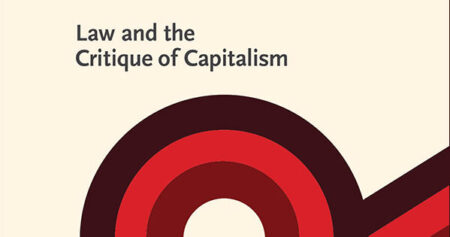What happens when we stop generalizing about the economy from the starting point of the grain market, as neoclassical models all seem to, and start generalizing from the post office, or the operating system? That’s the kind of question that Networks, Platforms, and Utilities puts on the table, and it is a major accomplishment. From an LPE perspective, however, one might worry that the book's current approach is insufficiently attuned to the “political” part of political economy.
Setting aside their habit of quoting Augustine, the post-neoliberal right can at times sound surprisingly like fellow travelers in their critique of the market. So how does their vision of life after neoliberalism differ from our own? And what does their arrival on the scene mean for the LPE movement?
Neoliberalism, we are increasingly told, has one foot in the grave. It is worth, then, thinking seriously about what comes next. What paradigms might replace it, or give it one more mutated form? One possibility, gaining attention in mainstream progressive policy circles, is what some call “productivism” or "supply side liberalism." But will a focus on production really address the fundamental problems with our political economy? And to what extent does this supposedly new version of industrial policy move us beyond the governing vision that defined neoliberalism itself?
Amy Kapczynski and Wendy Brown discuss the value of democracy, the role of the courts, and strategies for democratizing our political economy.
Jobs have come roaring back since the big losses of 2020, GDP has grown at its fastest annual rate in nearly four decades, and family balance sheets have become much stronger. Why, then, are Americans so unhappy about the economy?
The LPE Blog asks Amy Kapczynski, Aziz Rana, and Robert Tsai how we might fix the Constitution.




